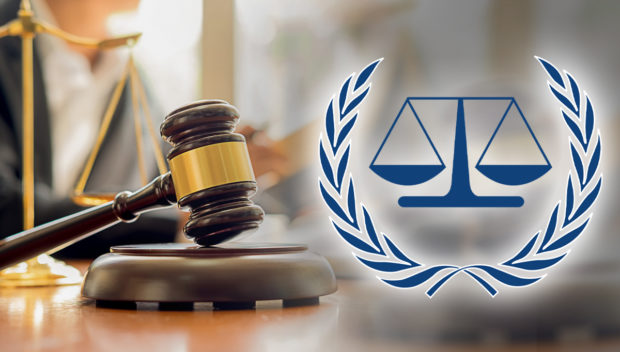CHR says Bongbong Marcos’ decision not to rejoin ICC ‘unfortunate’
MANILA, Philippines — While respecting President Ferdinand Marcos Jr.’s decision not to rejoin the International Criminal Court (ICC), the Commission on Human Rights (CHR) said that such a move is “unfortunate,”, especially from the human rights perspective.
CHR Executive Director Jacqueline de Guia said on Wednesday that many people have been demanding accountability over alleged human rights violations committed in the past years — especially those linked to the previous administration’s war against illegal drugs.
“[CHR] respects the prerogative of the President in deciding not to rejoin the [ICC],” de Guia said in a statement.
“This move, however, is unfortunate when viewed from the human rights perspective given the calls from both domestic and international fronts seeking truth and accountability for the thousands of deaths allegedly linked to the previous administration’s campaign against illegal drugs,” she added.
The ICC had launched a preliminary examination of supposed crimes against humanity in connection with President Rodrigo Duterte’s campaign against illegal drugs, a centerpiece program of his administration that complainants alleged had resulted in state-sponsored killings and human rights violations of suspected drug criminals.
Article continues after this advertisementHowever, Duterte refused to cooperate with the ICC, arguing that the Philippines had already withdrawn from the Rome Statute, its governing instrument.
Article continues after this advertisementREAD: Duterte does the inevitable, declares PH withdrawal from ICC
Despite Duterte’s rejection, ICC’s prosecutors — former prosecutor Fatou Bensouda and incumbent Karim Khan — maintained that the body still has jurisdiction as it happened while the Philippines was still a part of the ICC.
Last June 2021, before she ended her term as ICC prosecutor, Bensouda sought judicial authority from the Pre-Trial Court to formally start investigating the allegations against Duterte and other officials of his administration who were involved in the drug war.
Upon the assumption of Marcos into office, several personalities urged the new administration to rejoin the ICC to provide Filipinos a court of last resort if the justice system in the country failed them.
Marcos, however, said last Monday that the country has no intention of rejoining the ICC.
‘Commitment to human rights protection’
De Guia said rejoining ICC under Marcos’ watch could have been a way to show the government’s commitment to protecting human rights.
“Being part of the ICC would have also been a strong mark of the government’s commitment in ensuring that there will always be a remedy for human rights violations and in the protection of present and future generations of Filipinos,” she said.
“Human rights, as well as the pursuit of truth and justice, will continue to be an international concern, as evidenced by the growing attention on current humanitarian crises, such as the Russian aggression against Ukraine,” she added.
By the numbers
Last May, before Duterte ended his term, the Philippine Drug Enforcement Agency (PDEA) said that drug war deaths in legitimate police operations were 6,248.
Critics of the drug war claim, on the other hand, that the actual number of casualties might be something between 12,000 to 30,000.
READ: Total drug war deaths at 6,248 as of April 30 — PDEA
Despite the criticisms, Duterte remained adamant, insisting the country needs the antidrug campaign to avoid turning it into a narco-state. In one of his speeches, the former president also said that allegations of extrajudicial killings were black propaganda perpetuated by warring drug syndicates.
However, several cases — including the murder of teenager Kian delos Santos — had exposed the police as behind summary executions of drug suspects. In the case of delos Santos, a Caloocan court proved that the minor was not the actual target of a drug operation in 2017, and that he was killed despite his cries for mercy.
